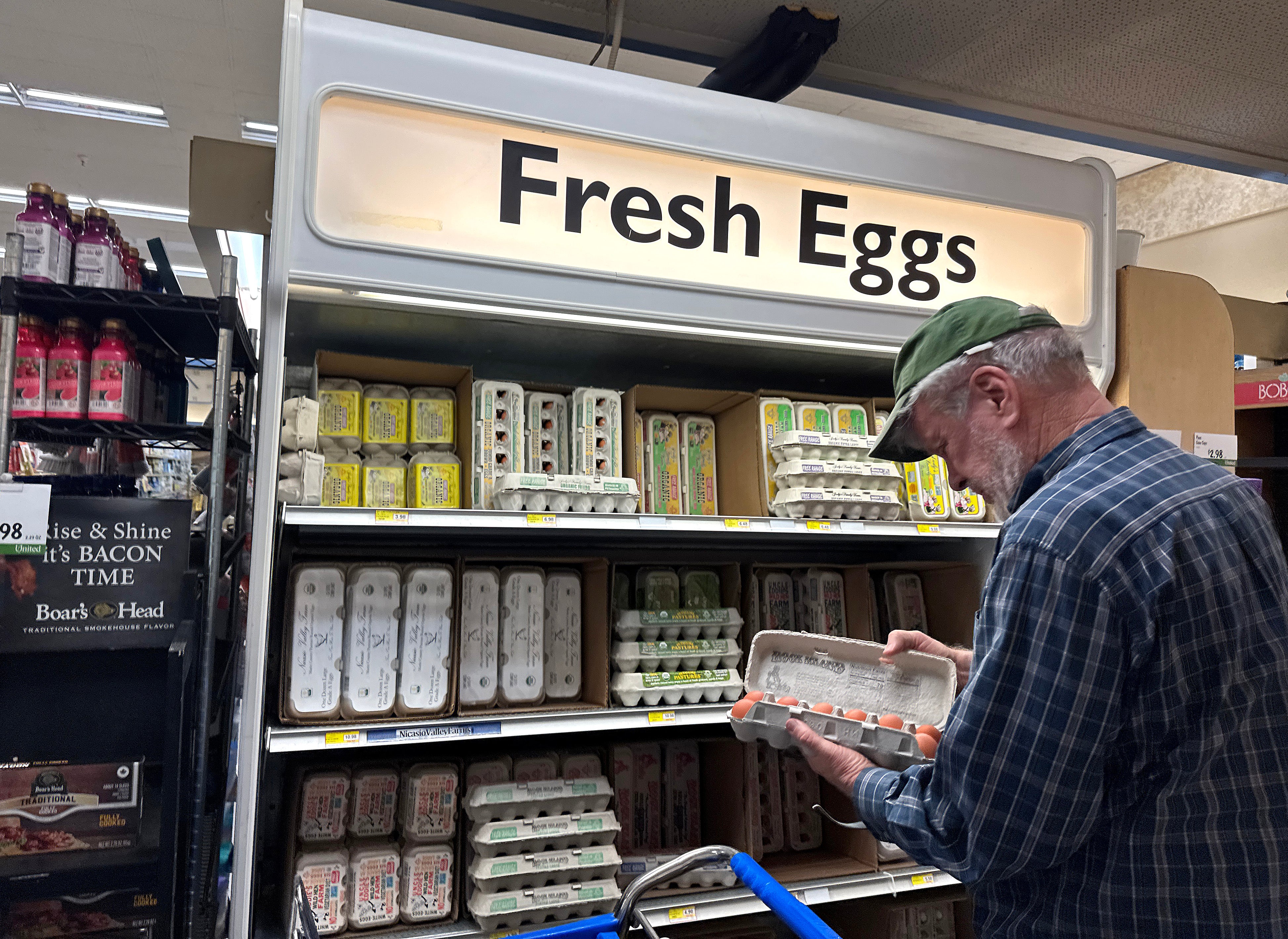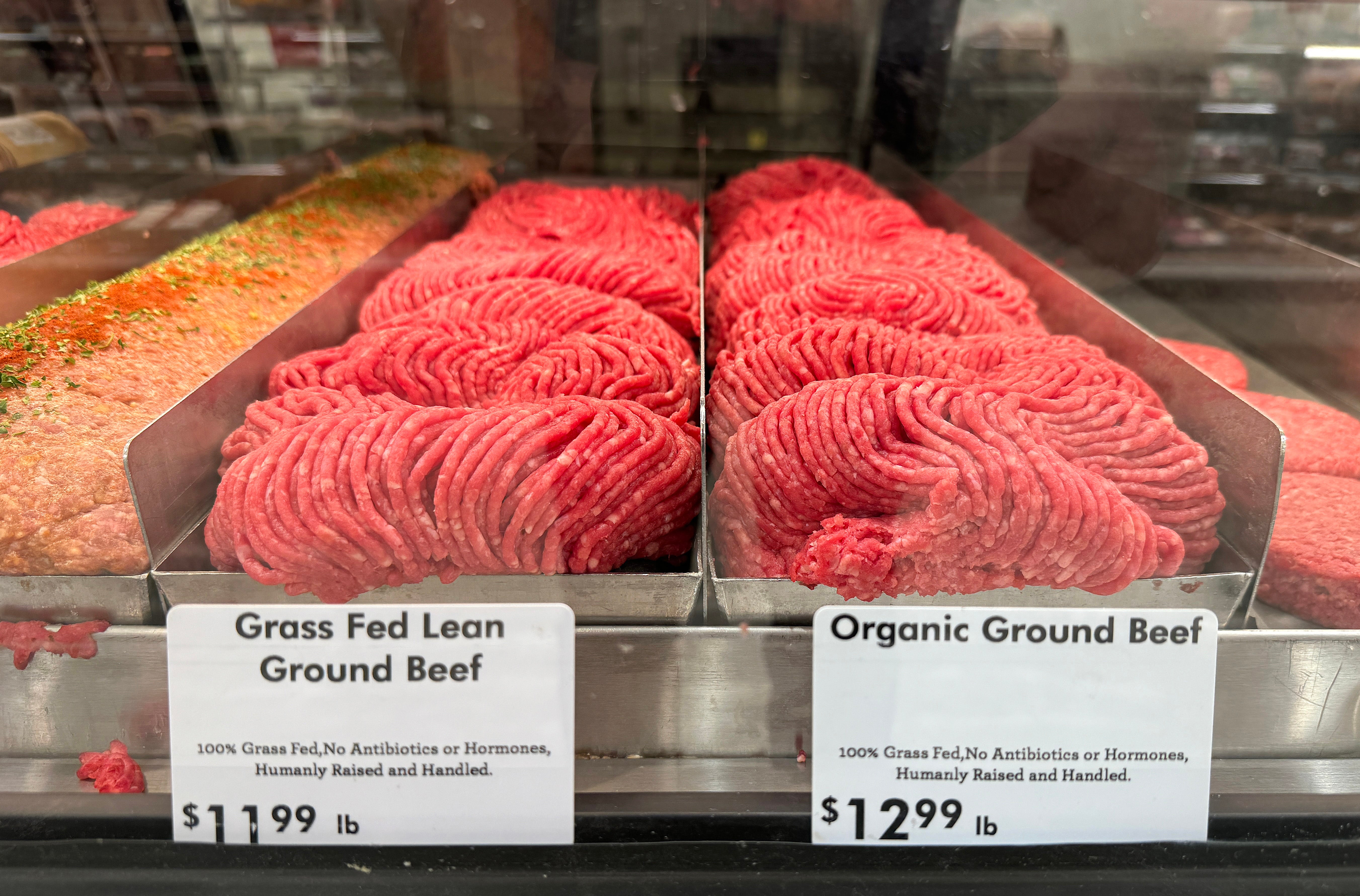President Donald Trump claims he’s driving down the cost of everyday goods such as groceries and gasoline with his policies but data from the consumer price index indicates only some products are getting cheaper.
The average prices of gasoline, bread and tomatoes have gone down since Trump took office in January but the cost of other goods such as eggs and beef have risen. Those numbers, reported by the Bureau of Labor Statistics, also have not reflected the impact of tariffs.
But that hasn’t stopped the president from touting confidence about consumer prices.
“The United States is taking in RECORD NUMBERS in Tariffs, with the cost of almost all products going down, including gasoline, groceries, and just about everything else. Likewise, INFLATION is down. Promises Made, Promises Kept!” Trump wrote on Truth Social on Tuesday.
But looking ahead, the cost of produce such as tomatoes or ingredients such as wheat could make everyday groceries more expensive.
Gasoline
Gasoline prices have remained relatively steady since Trump took office but they have increased, by less than 1 percent.
The average cost of one gallon of unleaded regular gas was $3.23 in March, according to the consumer price index.
Although gas prices have been periodically dropping since July 2022, oil prices recently took a plunge in part due to an increase in production in the United States and the escalating trade war between the U.S. and China.
Eggs
The cost of eggs hit an all-time high in March, with the average price of one dozen Grade A eggs at $6.23.
That’s a 25 percent increase compared to the price of one dozen eggs in January. The significant rise can be attributed to the avian flu epidemic, which has seen entire flocks of egg-laying hens wiped out.
But despite that, Trump has still said that the price of eggs are down “79 percent” since he’s taken office and that “they’re all over the place.”

Bread
The average price of one pound of white bread was $1.88 in March – a 2 percent decline from the price in January which was $1.93.
Should Trump reimplement higher tariffs, specifically on the European Union, it could raise the cost of bread. In 2023, the U.S. relied on the EU for hard red winter wheat, a main ingredient of bread, pasta and flour, due to droughts across the nation.
Ground beef
The average price of one pound of ground beef has risen 6 percent since January, reaching an all-time high of $5.85 in March.
Those rising costs are attributed to a low inventory of cattle across the country, according to Drovers, a beef industry trade publication. Some farmers told the publication a combination of more extreme weather patterns and less incentive to sell heifers have contributed to low inventory.

But demand for ground beef and other beef products remains high, which forces farmers to raise prices.
Tariffs could also make the situation worse as the U.S. imports much of its livestock from Canada and Mexico.
Tomatoes
The average cost of one pound of field-grown tomatoes has also gone down since January, going from $2.05 to $1.82 in March – but data show it’s typical for the price of tomatoes to rise in the winter and fall in the summer.
Still, tomatoes were 11 percent cheaper in March of this year compared to the same time last year.
.jpg)
But those prices are not expected to last as the Commerce Department warned they plan to withdraw from a 2019 anti-dumping agreement with Mexico that was supposed to allow the U.S. to import tomatoes without hurting domestic farmers.
The U.S. imports a majority of its tomatoes from Mexico.
Beginning July 14, tomatoes imported from Mexico will face a duty of nearly 21 percent. This means tomatoes will become more expensive during peak season.
‘How dare the US attack the UK’s free speech’: Readers call out trade deal demands
WTO says global trade could reverse this year because of Trump tariffs
Trump officials face criminal contempt after defying judge’s orders
Ukraine war latest: Trump ‘slashes Kyiv repayments bill’ to open up minerals deal
Musk claims to be the ‘No. 2 after Trump for assassination’
Starmer warned children will be at risk if he agrees US free speech demands






